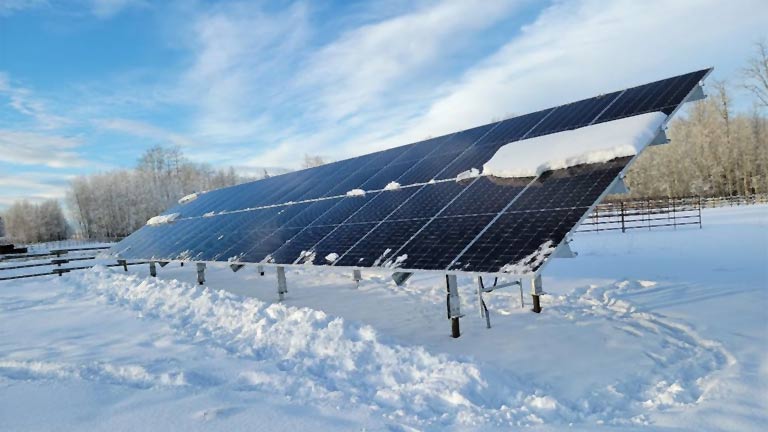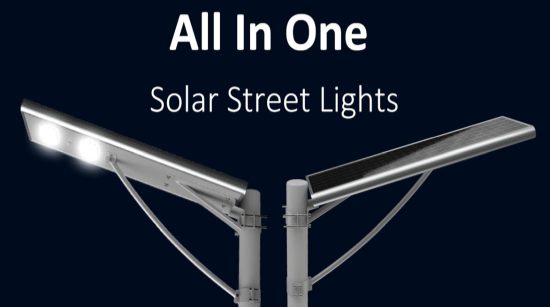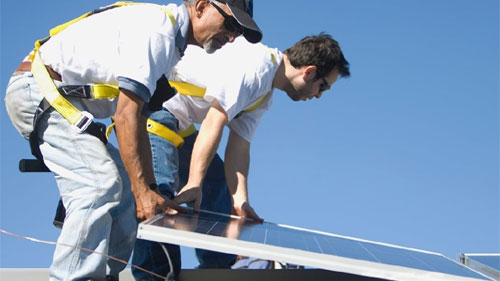
Dust from snow can have little to no impact on solar panels, but it’s a different story with heavy snow. Although researchers found that solar panels can still operate in harsh conditions, snow buildup on your solar panels can still cause concern. So how does snow affect your solar panels? To answer this, let us talk a bit about what solar panels are.
What are Solar Panels?
Solar panels, a charge controller, and a battery monitoring system are parts of a solar power system. This solar power system uses sunlight to generate renewable energy. Solar panels are mounted outdoors to collect sunlight or solar energy. The solar energy is then sent to the grid or stored in a battery for later use.
Some solar power systems have battery controllers and inverters to distribute excess charges evenly. A battery charge controller protects and regulates energy flow on solar panels. Battery controllers stop the flow of electricity when fully charged. Regarding the remaining unused electricity, it will be distributed to the electricity grid automatically.
Depending on the type of system, the solar generator may still continue operating even when there’s a power outage in your area. It will provide electricity for a few appliances or your whole house, capacity-wise. However, like other forms of energy, solar energy will go out during a severe storm.
How Snow affects Solar Panels
Some studies have found a 4-6% loss of solar energy production due to snow annually. For residential customers, this percentage translates to an annual electricity budget of $15 to $50. But this depends on electricity prices, location, and power consumption. Nonetheless, a large amount of snow—like a snowstorm can completely cover the boards and prevent daylight from getting to them. So, a large amount of snow on the solar panels will affect the efficiency of the off-grid system for capturing and producing solar energy. And the more snow piles on them, the less efficient solar panels become, especially without proper maintenance.
Aside from diminished sunlight, the snow’s weight can damage or debilitate the solar panels. Heavy snowfall can also cause stress on the PV system’s support structure. And while most solar panels can withstand up to 112 pounds per square inch (5400 pounds per square foot) of snow loading, researchers found micro-cracks on solar panels formed by the non-uniform load of the snow.
If you live off the grid and only use solar energy to power your home, any decrease in the efficiency of your solar power system can be a problem. You might even have to use more conventional electricity in the winter. Thus, in order to generate off-grid electricity efficiently, full sunlight must reach the panels. But this cannot be easy if the snow is all over them. So, if you want to get the most out of your solar power system, proper maintenance on your solar panels is essential.
4 Ways to Prevent Snow from Ruining Solar Panels
Experts in Edmonton solar panel installation services recommend four standard ways to help extend the life span of your solar panels. But first, a caveat:
Be sure that any actions you take when maintaining your solar panels will not void the system’s warranty. And before you try to remove the snow by yourself, thoroughly understand any agreements you’ve signed. That being said, here are four ways to prevent snow from ruining your solar panels.
1. Cleaning Solar Panels Regularly
Solar panels should be clean and debris-free regularly. You should also make sure that there are no cracks or other damage that could let water in. A gentle brush can remove snow from the solar panels’ surface; still, ensure your safety first! In cleaning the snow from your solar panels in the middle of winter, we do not recommend climbing a roof that is six meters high. Be cautious when cleaning solar panels and maintaining your panels to avoid damage and falls.
2. Melting Snow
When converting solar energy, the heat from solar panels can help clean the panels. Melting snow can wash away dirt and other debris from solar panels. If the snow isn’t sliding away on its own or has too much snow that isn’t melting away, you need to remove it manually using heaters or a snow-melting system to keep things running smoothly.
3. Angling and Mounting Spot
Solar panels work best if they receive direct sunlight all day. If your roof doesn’t have southern exposure, add more panels to the east or west side to make up for it. Angling your panels during installation can also help snow slide and get as much direct sunlight as possible. With enough space, ground-mounting your off-grid or standalone systems makes maintenance and snow removal easier. Ground-mounting also allows you to choose the tilt angle, which can improve the solar panel’s performance.
4. Solar Panel Snow Guards or Covers
Melting snow naturally, however, can create hazards for your home and solar panels, as the snow can fall all at once. A snow cover can protect your solar panels from the sun. Using transparent coverings can let sunlight shine through the boards. Snow guards can also help slow or stop snow from building on a roof. It will also reduce the risk of dangerous roof collapses.
Assessment
So how does snow affect your solar panels? The answer lies in solar panels’ efficiency. Panels that are partially covered by snow can still generate electricity. However, if snow covers your panels completely, the cells can’t receive sunlight, and the energy they generate will be less. To stay optimal, we recommend having them inspected and maintained by professionals.




